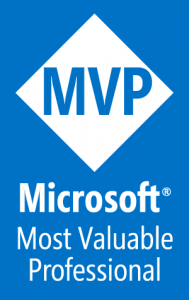Part 1: Blockchain – Hype or the Next Internet?
Part 2: Blockchain – Hype or the Next Internet? Part 2
Part 3: Blockchain – Hype or the Next Internet? Part 3
In a previous post, I shared my enthusiasm with enterprise blockchain and provided a brief Blockchain 101 overview. If you haven’t already done so, I suggest you jump over to part one and get caught up:).
Blockchain limitations
After an introductory review of blockchain, are you starting to see the limitations?
Bitcoin is the first app that used, and created, blockchain, yet bitcoin only posts a new block to the chain about every ten minutes according to its protocol. A transaction delay of ten plus minutes, wow! Bitcoin is promoted by many as a currency to buy and sell goods, but with block size limitations and the recording delay, this translates to a few transactions processed per second. We’re talking major limitations! Visa handles tens of thousands of transactions a second. To be sure, there are proposed solutions such as Segregated Witness (SegWit – more later) or even a forked cryptocurrency (Bitcoin Cash), but we are getting ahead of ours.
You might have heard that power grids around the world are being stressed by blockchain miners. The computation power now required for proof-of-work (POW) for many of the cryptocurrencies is insane. Remember, POW is a mechanism used by many current blockchain networks to decide who gets to post the next block to the chain. Thousands and thousands of high end, energy sucking servers around the world are competing to solve a mathematical contest that provides no other business or social value. This is absolutely inefficient.
There are many other issues, ideas, and arguments against blockchain, but I think you get the idea.
Enterprise blockchain
Which brings us to what I believe is really the point of all of this: Bitcoin and other cryptocurrencies, often collectively referred to as alt-coins, are collectively the first killer app of blockchain. Recall our previous analogy of comparing, as blockchain is to TCP and so is bitcoin to email. There are still other “ports” if you will to blockchain, other use cases that are likely much larger than cryptocurrencies that will truly be game changers. It took many years for the fruits of TCP to emerge, I believe it is safe to say it will be the same case for blockchain.
This is where enterprise blockchain comes into the mix. Enterprises, be they companies, organizations, governments, even a community of people, could benefit from an unbroken chain of custody that is distributed, unbreakable, and innately secure.
We’ll come around to commonly referred to examples of enterprise blockchain shortly, but let’s first focus on how enterprise blockchain may differ from current cryptocurrency implementations.
Blockchain does not need to use proof of work (POW). There are already proposed, and likely yet to be discovered, mechanisms to address POW’s purpose, while simultaneously addressing wasted resources. Case in point, many alt-coins currently utilize alternative POW strategies.
Further, the reward system for the nodes to maintain the network can be refined so that “transaction fees”, or “gas”, can be very small (we’re talking micro pennies) to post a record in the chain.
I believe as problems arise top talent will likely find, propose, and implement solutions. Let’s use recent history of TCP / the web as a guide. Google, Netflix, Spotify, Facebook, and even the iPhone were not truly part of the first few waves of the Internet revolution. I’d bet the blockchain powerhouses that will dominate in ten years have yet to be conceived. I’ll go so far as to say only the top handful of cryptocurrencies will survive a couple of years. Who remembers pets.com, webvan.com, Netscape, or Napster?
What can Enterprise blockchain offer?
As my interest continued to grow in blockchain, my instinct told me this was something big but I could not put my finger on it. You might be in the same boat?
Google “the promise of blockchain” and you’re going to find people claiming that blockchain will change absolutely everything. They may be right, but the best examples I’ve heard that interest me include the following. (Full disclosure, this isn’t remotely close to a comprehensive list.)
Smart contracts What if an entry in a block is not just a ledger of Henry gave Sue this amount of something, rather if event “L” occurred, do “A”, “B”, and “C”. Smart contracts provide a protocol for this concept that ensures without a doubt, when an event occurs, the linked events also occurred, and they’ve been recorded as such.
I start with smart contacts as a stellar use case of enterprise blockchain, but I do also want to point out current limitations. By the nature of smart contracts, the process of handling an event is open. Anyone can see the workflow if you will. It could be easier to find bugs in smart contracts that may then be exploited and cause problems. Case in point, there was a hack in a smart contract against an organization called The Dao in June 2016 that caused a split in the Ethereum network.
Voting Voting opportunities are quite exciting, and where I’ve been spending more of my mental bandwidth. Gone would be the days of vote counting and challenges such as the famous “hanging-chad”. We could truly realize one person, one vote. Blockchain could record without fail that someone voted. There are big hurdles her as with most every blockchain concept I’ve seen. Huge peaks yet to be scaled.
Medical record tracking – Throughout your lifetime, you’ll likely get sick, visit the doctor, check in to a hospital, have surgery, the list goes on… Blockchain could help store your information providing you a comprehensive history of what happened, where, and when. Your warning bells should be going off like crazy — Privacy, Privacy, Privacy!!! Yes, for sure. Again, hurdles to overcome.
Car/device maintenance tracking – Renault, a part of the Renault–Nissan–Mitsubishi Alliance, announced in July 2017 that R&D is in the works with Microsoft to tackle a use-case around car maintenance. Consider every time a recall when out, or any time you went to have your car repaired, an entry was added into a blockchain network. This entry would record who did what, and when. Now you have that unbroken chain of what has or what hasn’t happened to your car.
The list goes on…
These are just a few ideas that startups and well-established companies are tinkering with. For what should be obvious reasons, every major global accounting firm is researching blockchain. Many banks and other financial institutions are investigating blockchains potential as well.
And most certainly Microsoft is getting involved.
What do you think about enterprise blockchain? Is this where blockchain could or should go? Should we just focus on cryptocurrencies instead? Are you still not at all convinced? I continue to enjoy the blockchain debate.
In my next post, I’ll investigate what Microsoft is currently focusing on within blockchain, and I’ll also share more of my focused interests within the blockchain ecosystem.







Speak Your Mind